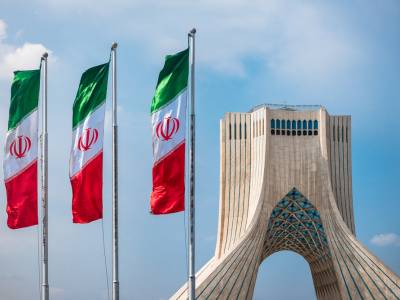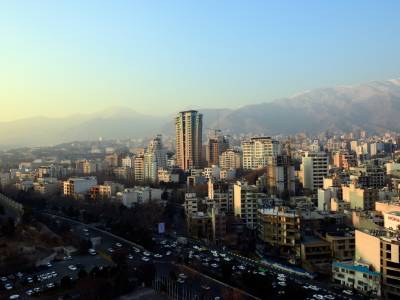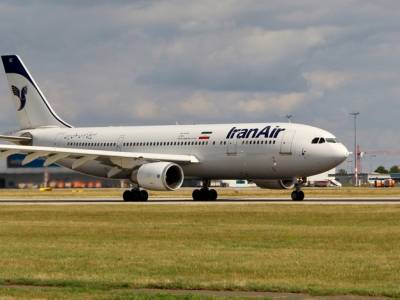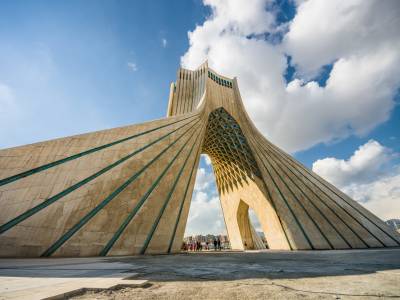-
伊朗
Investment opportunities in the Islamic Republic of Iran
22 4 月 2016
- 公司法
Expats require a work permit, or employment license, in Iran for any type of employment. The organ in charge is the “Department General for Employment of Foreign Nationals”, a division of the Ministry of Cooperative, Labor and Social Welfare. The requirements are set in articles 120-129 of Iran Labor Law. In general, a work permit will be issued to a foreign worker only if there are no Iranians having the same level of education or expertise. This sets the bar very high. Foreigners cannot apply for a work permit on their own, unless they establish an enterprise in Iran. Employers need to submit their request and documents as are listed and announced by the Department General for Employment of Foreign Nationals for verification. This list normally requires identification documents of applicant including resume and expertise documents, letter of request from the employer attached with company official documents (registration notice, latest changes, chart and etc.). Prior to this stage, employers cannot enter into an employment contract with foreigners. Then, the documents are sent to the Technical Board for Employment of Foreign Nationals which is very strict regarding issuance of work permits.
FIPPA (“Foreign Investment Promotion and Protection Act”) allows foreign investors, directors and experts and their immediate family members to acquire visa, residence permit and work permit. This was introduced in art. 35 of the executive directive to FIPPA. Yet, there are incentives for employment of Iranian nationals.
Work permits are, in any case, valid for one year. Renewal requires an application by the employer. The application, which must be written and should explain the need for renewal of the permit, must be handed by the employer at least one month before the work permit expiry date. Upon the end of the one-year validity of work permits, employers can refrain from renewing the contract. However, termination of work contract requires confirmation by the Ministry of Employment, which will result in termination of work permit. Working without a permit or employing an unlicensed employee are punishable by law.
According to the executive directive to FIPPA, the Ministry of Foreign Affairs has an obligation to ask Iranian embassies to issue a single or a multiple-entry visa clearance (with a validly of three years) and a three-month residence permit upon receiving a request from the Organization for Investment Economic and Technical Assistance of Iran (OIETAI), which is also in charge of issuing a FIPPA license for foreign investors. People who enter in Iran using this type of visa can obtain a three year residence permit and will get a work permit, which is valid for one year but is renewable once the FIPPA license of the investor is issued.
Employment insurance of foreigners is similar to the one for Iranian and can be obtained from the Organization of National Welfare (Ta’min Ejtemae’i) at similar rates. According to article 5 of Iran Social Welfare Law, when foreigners are insured in their own country, the employer might be exempted from their Iranian insurance if the foreign insurance covers work accidents, pregnancy, damages relating to wages, disability, retirement and death.
As mentioned above, in order to subject foreigners to Iranian taxation, they have to obtain work and residency permits from the Labor and Social Welfare Organization of Iran. In this light the long term multiple visa is also granted to foreigners to facilitate their entry and exit from the country. If foreigners without the necessary permits start working in Iran, even though through occasional trips to Iran, they will be subject to payment of fine and income tax as determined by the Tax and Organization and Labor and Social Welfare Organization of Iran. Iranian Law does not quantify the minimum number of days of presence in Iran to be considered as a working immigrant. Normally it is the duty of the Immigration Police to verify if a foreigner is working in Iran.
As far as taxation of foreigners’ income is concerned, the salary paid to foreign employees is taxable with the same rates of Iranian salaries. According to Art. 131 of Iran law on direct tax, income tax payable in Iran is between 15% and 35%, depending on income brackets.
| Annual Taxable Income | Rates | Of the excess over |
| Up to IRR 30,000,000 | 15% | |
| Up to IRR 100,000,000 | 20% | IRR 30,000,000 |
| Up to IRR 250,000,000 | 25% | IRR 100,000,000 |
| Up to IRR 1,000,000,000 | 30% | IRR 250,000,000 |
| Over IRR 1,000,000,000 | 35% | IRR 1,000,000,000 |
Furthermore, Iran signed the Treaty on Avoidance of Gaining Double Taxation with many countries around the world, including Italy, France, Germany, Austria, Spain, China, Turkey and recently Cyprus. Under the rules of this Treaty, the amount of tax that has been paid by one applicant shall not be fully taxable again by the other country, but the percentage of difference between the tax rates of two countries shall be calculated on the whole income of the applicant.
The tax rate for foreign companies is also the same provided for Iran companies. Either the company is 100% owned by foreigners and is registered in Iran, or the company is a representative or a branch office of a foreign company, the same rules of tax are applicable. Some tax exemptions are provided for branch offices of foreign companies that only conduct research, feasibility study and marketing, without gaining incomes. Tax rate for companies in Iran is 25% of the annual profit.
Located in the heart of the Middle East, and Asia’s main pathway to Europe, Iran has a geopolitical and economical key role in the region.
Iran is the world’s 18th largest economy by Power Purchasing Parity. It is an economy in transition, member of the Goldman Sachs’ next eleven and the biggest economy outside of the WTO. The Institute of International Finance has speculated a GDP growth of over 6 per cent for Iran following the implementation day, the biggest economic growth in the world. In 2011, Iran had the fastest rate of scientific growth in the globe and it currently has one of the fastest developing telecommunication industries in the world. Iran has a population of over 80 million people and a high rate of unemployment (13 %).
The predominantly urban population is an ideal untapped middle-class market with huge potential. Because of the sanctions in the previous decade, the market is far from being saturated and offers invaluable opportunity for foreign investors and producers. Its young educated population, for example, can provide ideal skilled local workforce for foreign investors.
Now, with the actual removal of international and unilateral sanctions, which burdened the Iranian economy in the previous decade, there is the hope that Iran will attract ample foreign investments.
Iran has signed Bilateral Investment Treaties and Double Taxation Agreements with numerous OECD countries. Iran has enacted a law encouraging and protecting foreign investment (FIPPA). It has also acceded to the New York Convention on the enforcement of arbitral awards and has adopted UNCITRAL international commercial arbitration model law with only minor adaptations. The Iranian law also affords foreign investors reasonable protection of their intellectual property rights. There are up-to-date enforceable electronic commerce and IT laws as well.
The government has revised the legal requirements for making investments in Iran with the aim of simplifying and accelerating the procedure. Now, there is much more transparency and obtaining an investment license has become very straightforward and could be done in only a few weeks.
Foreigners can establish companies in Iran with 100% foreign ownership, but at the same time enjoy all the rights and privileges available to Iranian national companies (e.g.: purchase real estate). Foreign companies can also establish a representative office or a branch in Iran. If the foreign investment is eligible for a FIPPA license, it can have access to many more incentives. Besides, there are tax exemptions or reductions available in Iranian Free Trade Areas and also for productive activities in the less developed areas of the country.
Evidently, by far the most attractive sector for foreign investors is the petroleum sector, due to the possibility of producing low-cost oil in Iran. With current low oil prices, Iran is one of the very few safe countries where investment in oil can actually produce an economic return. With the introduction of Iran Petroleum Contracts, foreign investors are further encouraged to bring capital to Iran’s petroleum reserves.
Another appealing sector is electricity production. Upon a successful restructuring of its power market, Iran is aiming to diversify its power generation, providing attractive incentives and tax reductions for investments made in renewable energy. Opportunities in this area abound and many foreign companies are already on their way to contribute.
In the wake of sanctions removal, there is also hope for a real boost to Iran tourism industry. Such a boom requires expansion of tourism infrastructure as hotels, luxury accommodation and railways, which would not be possible without foreign investment. As an ancient country with moderate temperatures and spectacular scenery, Iran’s tourism industry looks very promising.
FIPPA provides three main vehicles for foreign investment: Direct Foreign Investment in all areas where private participation is allowed; in the other areas investment can only be made by means of Build Operate Transfer, Build Operate Own, or Buy-Back mechanisms.
There are, however, still some significant barriers. The main stumbling block is the complicated bureaucracy that is deeply embedded in the Iranian legal system, despite the new administration’s attempts to increase transparency. In addition, foreign investment in certain industries is forbidden without State participation. The Iranian banking system has also been isolated during the last years because of the sanctions. All these shortcomings can easily be resolved once the Iranian economy is further integrated into global economy. For now, Iran is ready to embrace the new circumstances to give its economy a real boost and in so doing it requires the collaboration and participation of foreign enterprises. Very similar to the rhetoric governing Iran’s nuclear negotiations with the Five Plus One, the Iranian economy is exploring win-win solutions that would benefit not only itself but also its trade partners.

























